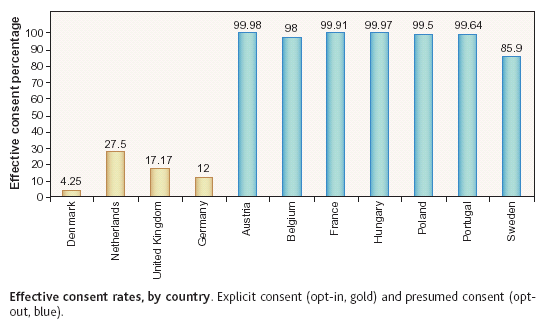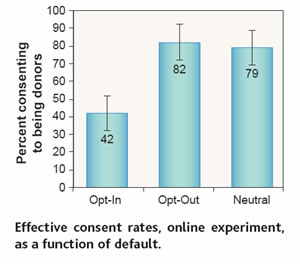Default effects of organ donation
ARE DEFAULT EFFECTS CAUSED BY PUBLIC IGNORANCE?

A debate on the Becker-Posner blog includes this hunch by Posner:
One possible reason the weak default rule appears to have a significant effect is public ignorance. The probability that one’s organs will be harvested for use in transplantation must be very slight–so slight that it doesn’t pay to think much about whether one wants to participate in such a program. When the consequences of making a “correct” decision are slight, ignorance is rational, and therefore one expects default rules to have their greatest effect on behavior when people are ignorant of the rule and therefore do not try to take advantage of the opportunity to opt out of it.
A search for some insight into this hunch takes us back to the very first Decision Science News post. The massive default effects found in the real world (pictured above), do not seem to be due to ignorance. The Science article by Eric Johnson and Dan Goldstein included a simple experiment in which people were asked to decide their organ donor status upon moving to a new state that either had an opt-in or an opt-out default.

The behavior in experiment mirrored that in the real world, and cannot be explained by ignorance or laziness: every participant read the policy immediately before deciding, and the only effort needed to change from the default was a mouse click. The cause of default effects is still something of a mystery, though DSN hopes to soon report a scoop on this topic.

